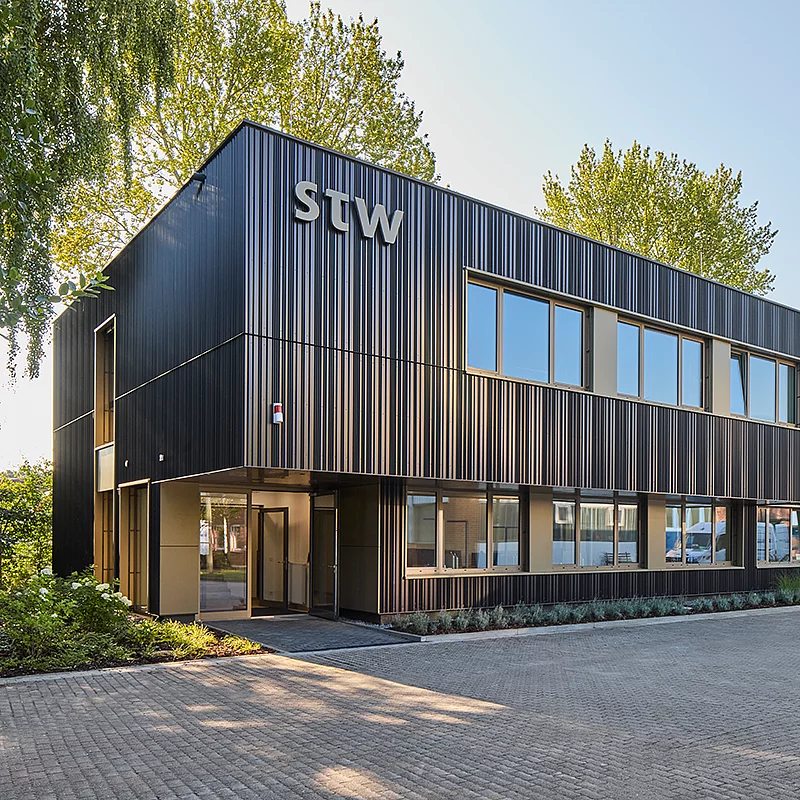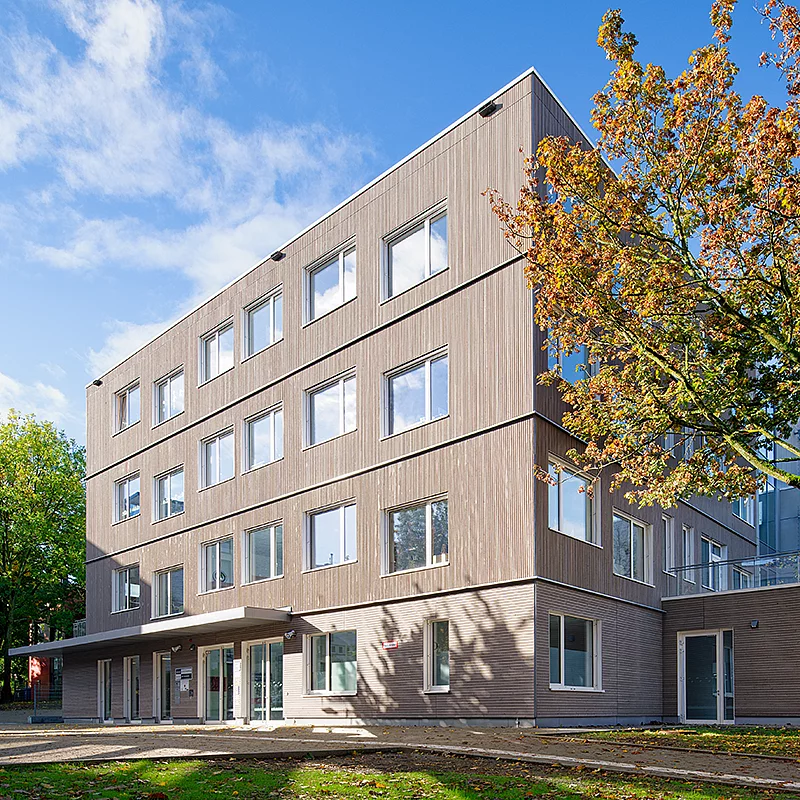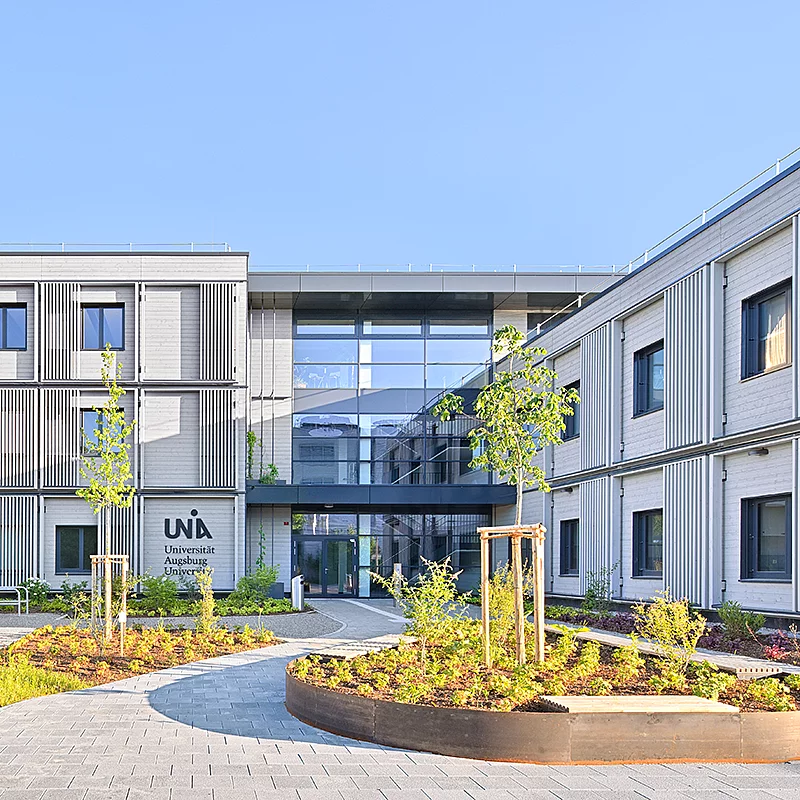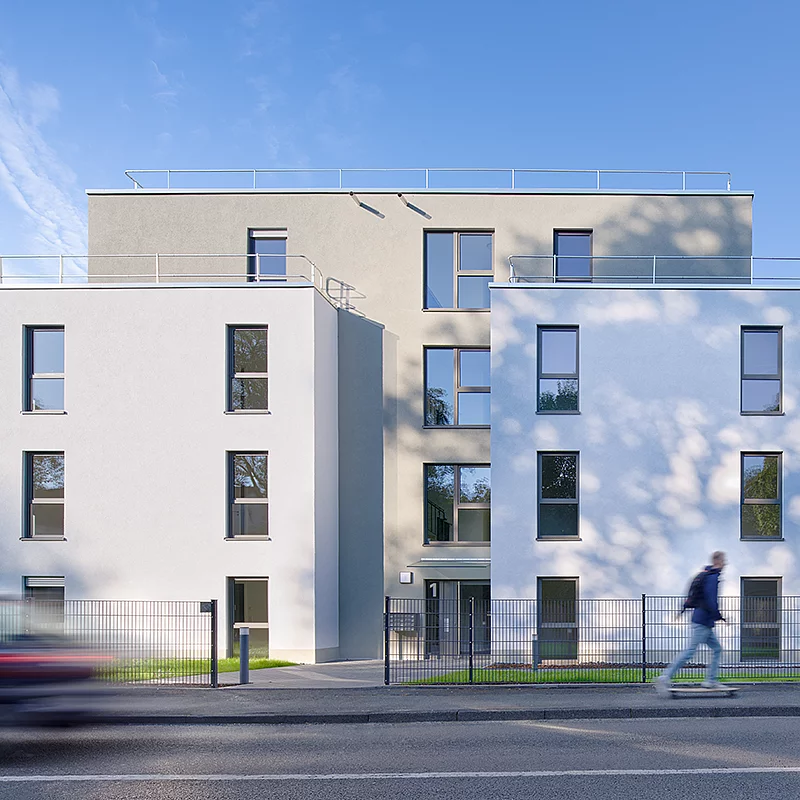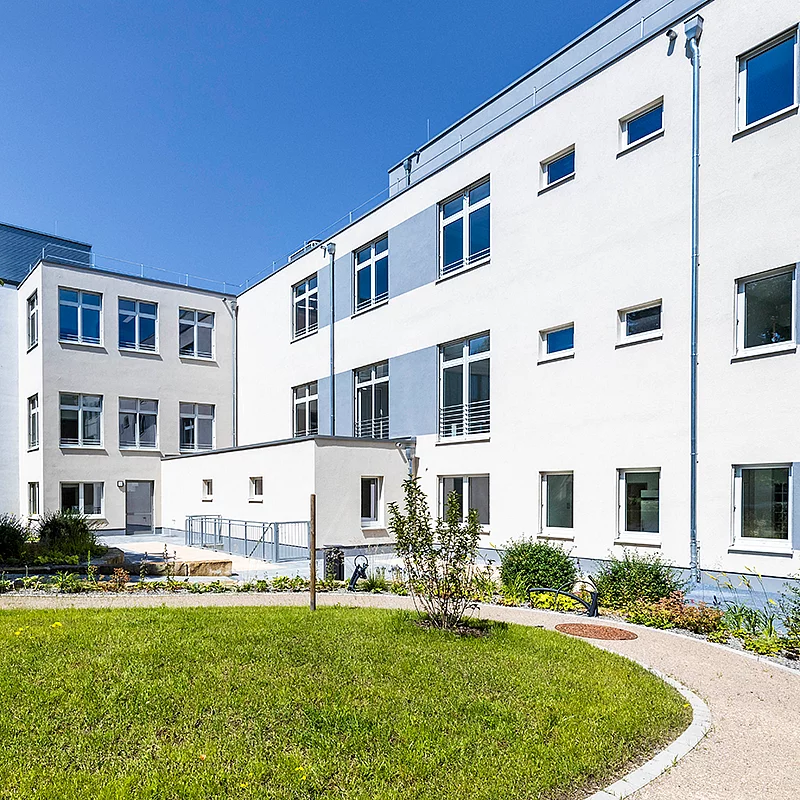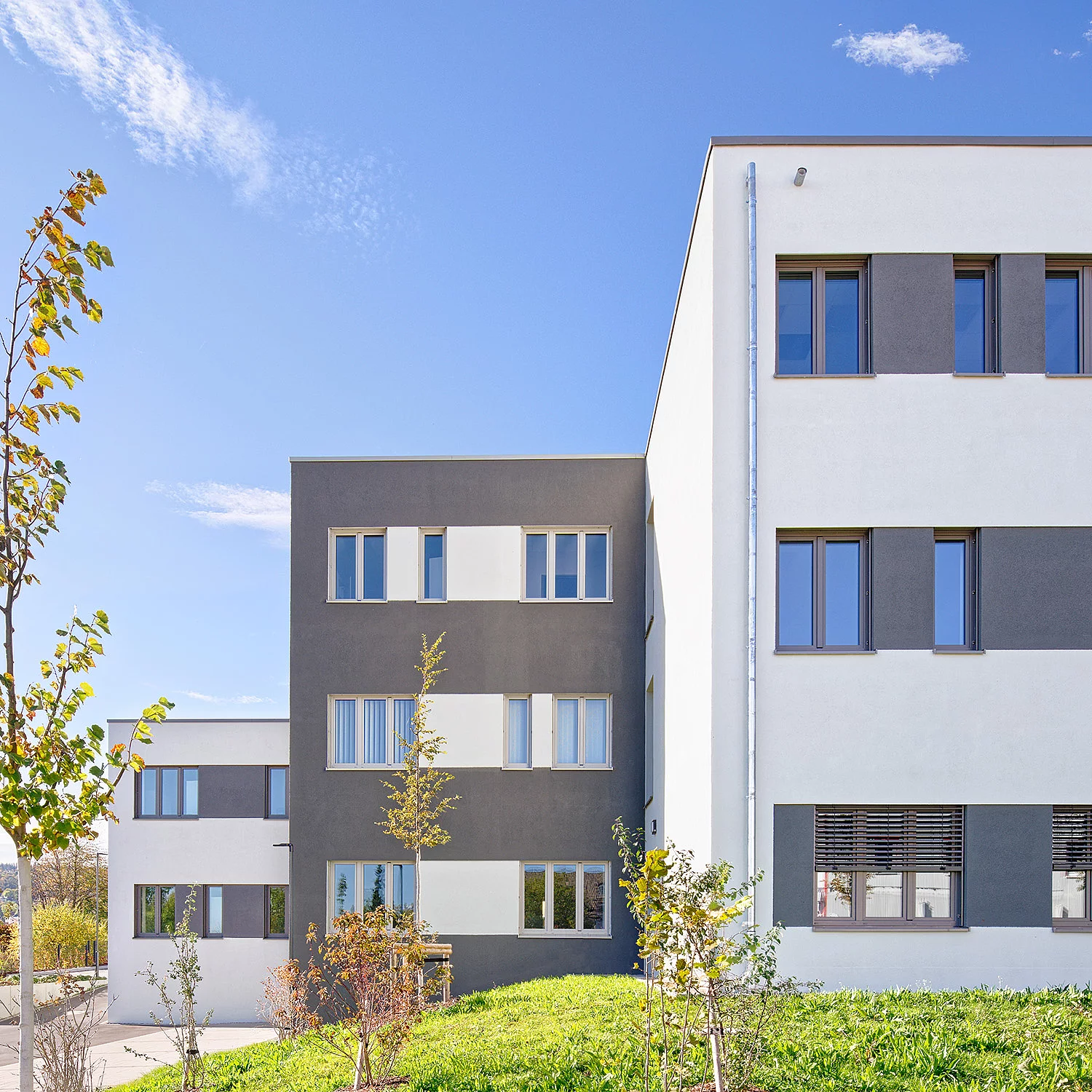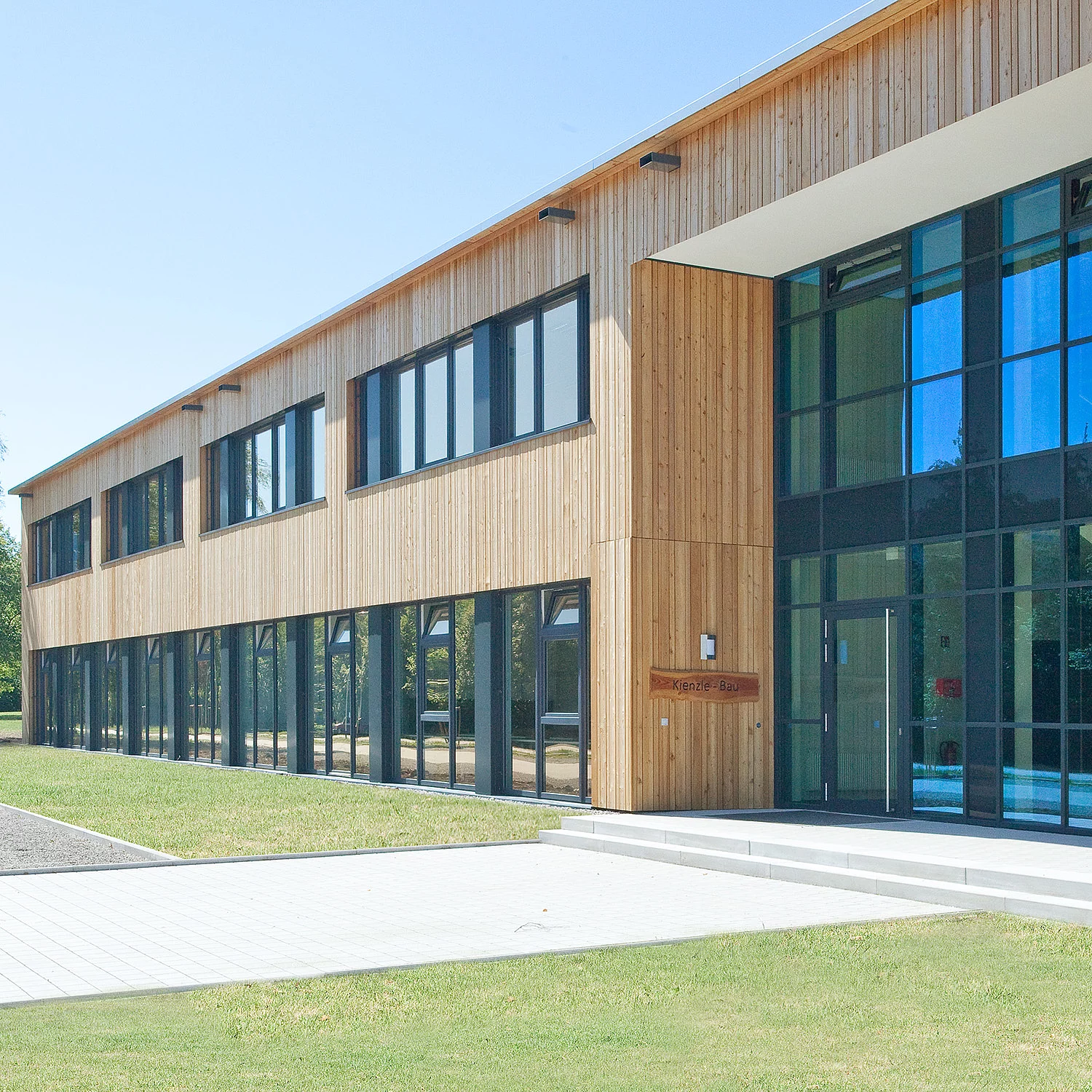Possible applications for modular construction
Modular construction: How does it work?
What exactly is modular construction? Modular buildings are a durable, flexible and high-quality alternative to conventional building solutions. However, system construction and the modular construction method reduce the construction time by around 70% and thus enable builders to realise individual, flexible solutions quickly. In addition, the high degree of prefabrication of the modules provides a high degree of planning security, but also a high degree of flexibility and allows plans to be changed at short notice.
The video shows exactly how modular construction works and how the production process in the factory leads up to the completion of a building from the ALHO Raumfabrik.
Our modular construction methods
Advantages of the modular design
In terms of quality and durability, modular construction, a system construction method consisting of 3-dimensional room cells, is today at least an equivalent alternative to conventional construction methods. Modular construction offers clients in the public sector, the healthcare sector and industry as well as investors and project developers unbeatable advantages. Modular construction pays off particularly in terms of cost-effectiveness, investment security and sustainability.
This is because buildings for work, education, health and living are created from prefabricated room cells in up to 70% less construction time at a fixed price and on a fixed date - buildings that can be flexibly adapted to your current needs at any time thanks to the system construction method.
Fixed costs. Fixed dates. Ready to go. ALHO.
FAQ on ALHO modular steel construction
As solid as "brick on brick", only much faster and more flexible - modular buildings are first and foremost a permanent solution and therefore a sustainable and clever alternative to conventional construction methods. In principle, modular construction is ideal for new buildings of all kinds, for extensions or additions. Modular buildings from ALHO are structurally mature, energy-optimised and architecturally sophisticated. From the outside, they are indistinguishable from conventionally constructed buildings.
In contrast to permanent modular buildings, container buildings made from system containers primarily fulfil temporary space requirements. Standardised units are joined together to form buildings. In terms of their architectural design, however, container buildings are subject to restrictions - apart from an individual colour scheme - and always have a visible frame construction, sheet metal façade and perforated windows.
The elimination of defects is demonstrably the number one cost driver in construction. In conventional construction, these defects are mainly caused by poor coordination of the trades on the construction site and a lack of quality monitoring.
Modular buildings, on the other hand, are constructed under consistently good conditions in industrial production halls. Here, all trades can be optimally coordinated and harmonised under one roof. In addition, constant internal quality controls and external monitoring by independent testing institutes are in place. Proven detailed solutions, standardised processes and continuous monitoring guarantee the high quality of the up to 70% prefabricated modular buildings.
The modular buildings are manufactured on an industrial scale. This offers considerable advantages over conventional construction methods. Shorter construction times thanks to parallel processes and weather-independent production as well as the resulting earlier utilisation options for the buildings and faster refinancing provide a monetary advantage.
The high product quality is guaranteed by the use of high-quality raw materials, standardised processes, weather-independent production and regular external and internal monitoring. In addition, modular construction is a recognised sustainable construction method. Thanks to the industrial production processes, no surplus materials are lost in our factories. There is also no additional waste on the construction site and the environmental impact of noise, dust, construction site waste and other factors that are detrimental to health is minimised as far as possible.
The sustainability of a modular building can be documented throughout its entire life cycle. In the industrial production of modular buildings, resources are conserved sustainably thanks to precise material calculation and the optimised use of materials. In addition, steel as a raw material is demonstrably one of the most sustainable materials of all due to its 100% recyclability and resulting availability.
The high degree of prefabrication of the modules minimises the environmental impact of dirt, noise and construction waste during the construction of the modular buildings on site. During operation of the buildings, optimised energy concepts and the use of renewable energies ensure low operating costs and protection of the environment. In addition, the life cycle costs of the buildings can also be kept low.
Another important aspect in terms of sustainability is the possibility of converting buildings. Thanks to their self-supporting steel skeleton structure with non-load-bearing internal walls, modular buildings can also score points here, as rooms can be flexibly redesigned, enlarged, reduced in size or repurposed. And if the modular building is no longer needed, it can be moved or completely dismantled, with all materials being almost 100% recycled and returned to the material cycle.
The insulation and moisture protection of the modular buildings, which are optimised according to the physical properties of the building, ensure an optimum climate in winter and summer. The optimum insulation of the modular buildings ensures cosy warmth in winter and protects against heat in summer. The use of only quality-tested and healthy materials also creates a cosy feeling of space.
ALHO Systembau GmbH is prequalified for public construction projects and is included in the list of prequalified companies under registration number 010.012920. Prequalification is the upstream, order-independent verification of the proof of suitability in accordance with the requirements defined in § 6 VOB/A. ALHO thus proves its suitability to the contracting authorities.
ALHO Systembau GmbH is certified according to DIN EN ISO 9001:2008. DIN EN ISO 9001 specifies the requirements for a quality management system (QM system) that an organisation must meet in order to be able to provide products and services that meet customer expectations and any official requirements. At the same time, the management system should be subject to a continuous improvement process. The introduction of a quality management system at ALHO was a strategic decision for continuous process optimisation in terms of increased customer friendliness.
